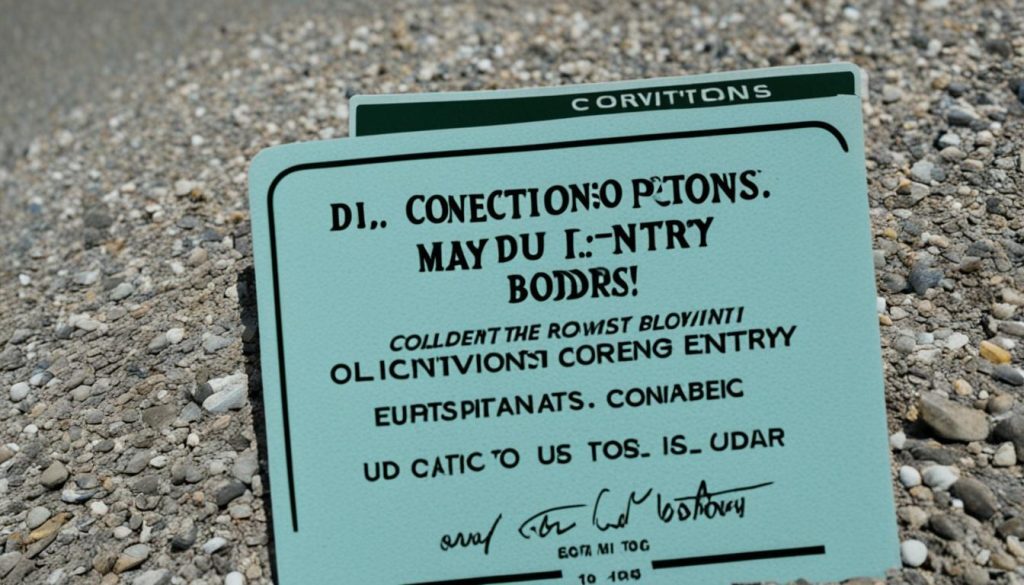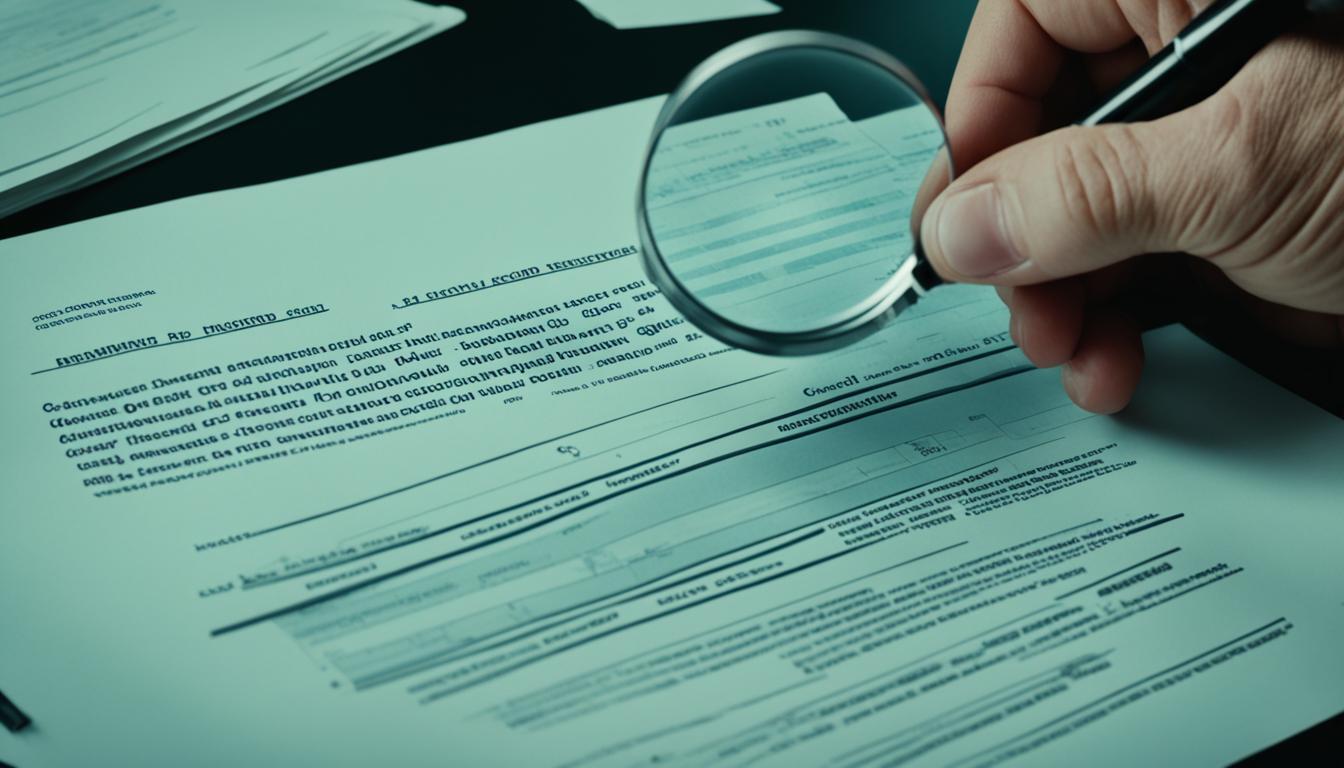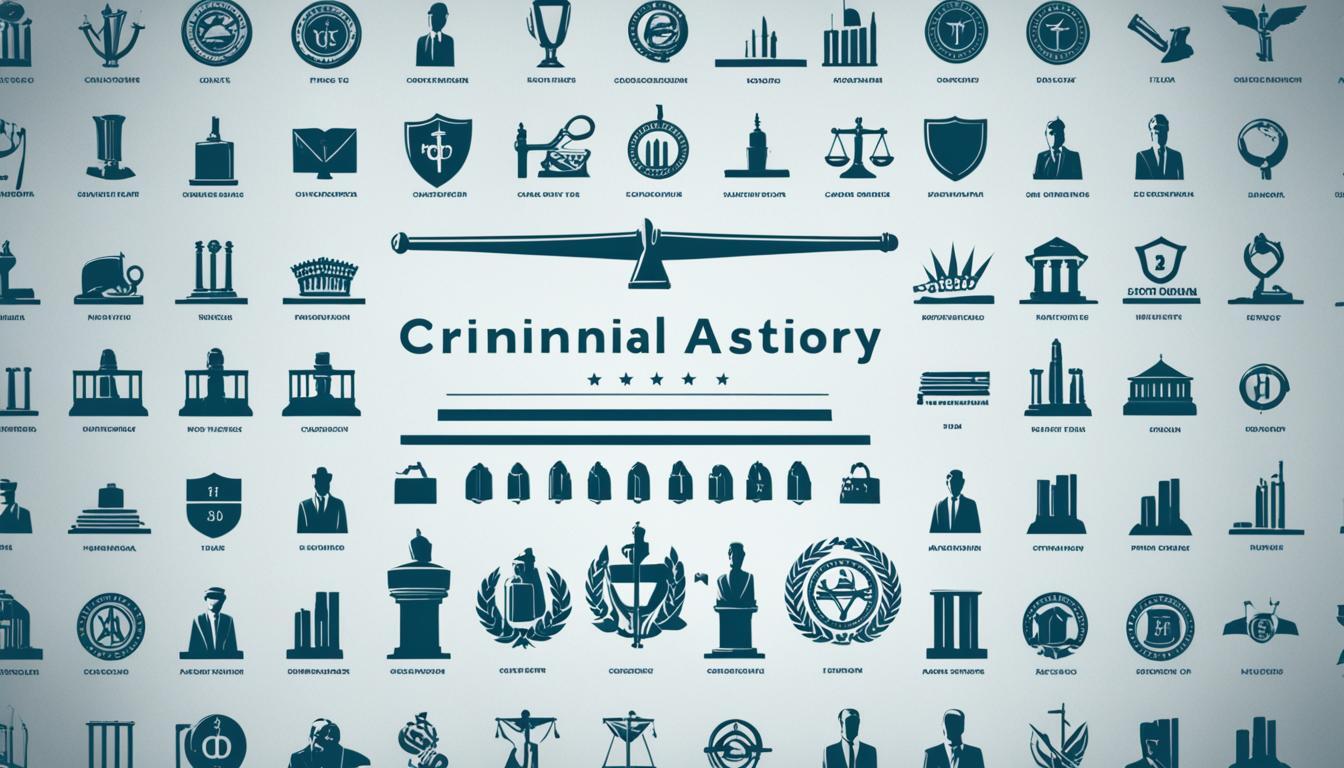Entering U.S. With DUI from Canada: Know How
Did you know that over 90% of Canadians live within 160 kilometers of the U.S. border? With such close proximity, it’s not uncommon for Canadians to travel to the United States for various reasons, including business trips, vacations, or visiting friends and family. However, if you have a DUI or impaired driving charge on your record, you may be wondering if it will affect your ability to cross the border.
When entering the U.S. with a DUI or impaired driving charge from Canada, there are certain stipulations that need to be considered. While a single DUI conviction is not grounds for denial of entry into the U.S., multiple DUI convictions or a DUI conviction in combination with other misdemeanor offenses can make a person inadmissible. It is important to adhere to all Customs regulations for a smoother border crossing experience. U.S. Customs and Border Protection is generally more lenient regarding drinking and driving related charges compared to their Canadian counterparts.
Key Takeaways:
- Having a single DUI conviction from Canada does not automatically prevent entry into the United States.
- Multiple DUI convictions or a DUI conviction with other misdemeanor offenses may make a person inadmissible.
- Adhering to Customs regulations is crucial for a smoother border crossing experience.
- U.S. Customs and Border Protection is generally more lenient towards drinking and driving related charges compared to Canadian counterparts.
Understanding the Requirements for Crossing the U.S. Border with a DUI
When traveling to the United States from Canada with a DUI conviction, it is essential to understand the requirements and documentation needed for a smooth border crossing. While a DUI conviction alone may not automatically bar entry into the U.S., it is still important to provide verifiable documentation and satisfy the U.S. Customs and Border Protection (CBP) requirements.
To ensure a hassle-free border crossing, individuals with a DUI conviction should gather necessary documents to prove that any additional charges related to the conviction are summary offenses. Summary offenses, which are viewed as minor in nature by the U.S. government, typically do not constitute sufficient grounds for denial of entry.
However, the final decision regarding admission lies with the U.S. Border Agent who may request comprehensive documentation to verify the nature of the convictions. By providing the required evidence, individuals can increase their chances of a favorable outcome during the inspection process.

To avoid potential complications and ensure a smoother crossing, it is highly recommended to apply for a U.S. waiver. A U.S. waiver provides a letter of admissibility and demonstrates that an individual has met the necessary requirements for entry into the United States, including those related to a DUI conviction.
By obtaining a U.S. waiver, individuals can have peace of mind knowing that they have the necessary documentation to support their entry into the United States. The waiver helps streamline the border crossing process, minimizing delays or further scrutiny by the CBP.
Overall, understanding the requirements and being prepared with the appropriate documentation is crucial when crossing the U.S. border with a DUI conviction from Canada. By following the necessary steps and considering options such as a U.S. waiver, individuals can ensure a smoother and more efficient border crossing experience.
The Importance of a U.S. Waiver for Hassle-Free Border Crossing
As an individual with a DUI or a minor Canadian criminal charge who frequently crosses the U.S. border, it is highly recommended to apply for a U.S. waiver. A U.S. waiver provides peace of mind and eliminates the need to repeatedly provide supporting documentation at the border. Whether you’re traveling for business, leisure, or family visits, having a U.S. waiver ensures a smooth and hassle-free border crossing experience.
If the U.S. government determines that a waiver is not necessary for your entry into the U.S., they will issue a letter stating so. However, it’s important to note that obtaining a U.S. waiver is generally beneficial, regardless of whether it’s required or not. By applying for a waiver, you demonstrate your commitment to complying with U.S. immigration laws and regulations, which can positively impact your chances of entering the United States without any issues.
The application process for a U.S. waiver should be initiated as soon as possible to avoid any delays. It involves providing detailed documentation, such as your criminal history, court records, and character references. It is recommended to seek professional assistance from a legal expert experienced in U.S. immigration matters to ensure a seamless application process.
Once obtained, a U.S. waiver is usually valid for a period of 1 to 5 years, depending on your specific circumstances. This allows for unrestricted travel to the United States regardless of past offenses. With a U.S. waiver in hand, you can confidently plan your trips to the U.S. without the constant worry of being denied entry due to your DUI or minor criminal charge.
Benefits of a U.S. Waiver:
- Eliminates the need to provide supporting documentation at the border
- Ensures a hassle-free border crossing experience
- Improves chances of entering the U.S. without issues
- Valid for a period of 1 to 5 years, allowing unrestricted travel
Obtaining a U.S. waiver is a valuable investment for individuals who frequently travel to the United States from Canada with a DUI or minor criminal charge. It provides the assurance and freedom to cross the border hassle-free, enabling you to focus on enjoying your travel experiences and creating lasting memories.

Understanding the Impact of a DUI Criminal Record on Travel to the U.S.
A DUI conviction in Canada can have implications for individuals traveling to the United States. While a DUI conviction will appear on a person’s criminal record, it does not necessarily mean they will be denied entry into the U.S. U.S. Customs and Border Protection has access to national Canadian police databases and can view a person’s DUI conviction.
However, it is important to note that a DUI is not considered a crime of moral turpitude, which is the list of criminal convictions that can prohibit entry into the U.S. This means that individuals with a DUI conviction can still enter the United States, although complications during the immigration process may arise.
Even if a person receives a pardon for their DUI conviction in Canada, it will still be visible in the American database. Therefore, it is crucial to understand that a DUI conviction, although it does not directly impact the ability to cross the U.S. border, can lead to potential complications and delays when traveling to the United States.
It is important for individuals with a DUI conviction to be prepared and proactive when crossing the U.S. border. This includes providing any necessary documentation to U.S. Customs and Border Protection and being aware that additional screening may be required.
In cases where a person frequently travels to the United States, obtaining a U.S. waiver is highly recommended. A U.S. waiver provides an individual with a letter of admissibility, allowing for unrestricted travel to the United States regardless of past DUI convictions or other minor Canadian criminal charges.
Overall, while a DUI conviction in Canada does not make a person automatically inadmissible to the United States, it is important to understand the potential impacts and be prepared when traveling to the U.S.
Avoiding a DUI Criminal Record and Seeking Legal Assistance
When it comes to avoiding the lifelong impacts of a DUI criminal record, it is crucial to take immediate action. With the help of an experienced DUI lawyer, you can mount a strong defense to prevent a conviction that can negatively impact various aspects of your life. From employment opportunities to immigration status and travel, a DUI conviction can have lasting consequences.
It is important to fully understand the legal implications of a DUI charge in both Canada and the U.S. Each country has its own laws and processes, and seeking legal assistance can help you navigate the complexities of the legal system. By hiring a knowledgeable DUI lawyer who specializes in both Canadian and American law, you can ensure that your case is handled with expertise and increase your chances of obtaining the best possible outcome.
Remember, the goal is to avoid a DUI criminal record altogether. When facing a DUI charge, it is essential to act promptly and consult with a reputable DUI lawyer who can guide you through the legal process. By taking proactive measures and securing a strong legal defense, you can protect your future and minimize the potential consequences of a DUI charge.
- The Role of Police in Community Safety & Unity - October 6, 2025
- Quebec Police Officer Salary Insights 2023 - July 13, 2025
- Canada Arrest Protocol: What Police Say Upon Arrest - June 12, 2025




















Post Comment